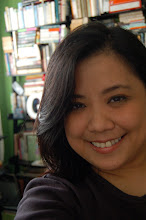 In the brave new world that Huxley describes, human beings are decanted out of test tubes and demijohns that go through an assembly line in a place called a hatchery. From embryo to adulthood, people are divided by castes.
In the brave new world that Huxley describes, human beings are decanted out of test tubes and demijohns that go through an assembly line in a place called a hatchery. From embryo to adulthood, people are divided by castes.
In our reading group that discussed Brave New World, there were divisions as well. The Alpha intellectuals, the Epsilon shallows, the in-betweens, the undecideds, and the posers (posing as shallows, not intellectuals). We were divided into sci-fi fans, and those who would never pick up this book in normal circumstances. Those who loved the book, those who hated it, and one who “luved it so much.” The optimists versus the pessimists. Those who read the book, and those who scanned spark notes the night before.
The reactions to the book and the ideas it sparked ran a very wide gamut. We certainly didn’t agree on much, but we agreed it was a great choice in inciting impassioned debate. The book is a minefield of topics for discussions on science, free will, religion, gods in lower case g, happiness, Malthusian economy, media propaganda, determinism, feminism, capitalism, consumerism, individualism and many other isms. Noses bled.
As for me, I bought the book early this year only because someone recommended it. And well, uhm, it was on sale, which is usually a good enough reason to buy anything. It was destined to stay in my TBR pile ever after. Until it was chosen as June’s reading group book. (That’s what you get when you force a molecular biologist to moderate.) So I had no choice but to actually read it. I almost thought I would not be able to get through the convoluted foreword written many years after the original novel was published. I suspect that the foreword was just a way for the author to say, “hey, my writing has improved.”
If you look at the novel as a literary piece, then you’ll be disappointed at the sophomoric writing and the one-dimensional characters. But if you lower your expectations and see it as an amusing satire on man’s burning desire to play God and control the world, then it is not all that bad. As one of the reading group members said, “I’ve read worse.”
To be fair, the book made me think, especially close to the end when Mustapha Mond explained a lot about the brave new world and the rationale for the way its creators made it to be. And the discussions that followed illuminated to me not so much what others think of the world, but what I want the world to be. But that’s for another discussion. Maybe over soma, er coffee.
Tuesday, November 25, 2008
BRAVE NEW WORLD by Aldous Huxley
Posted by
gege
at
1:48 AM
![]()
Labels: my book lust
Subscribe to:
Post Comments (Atom)












0 comments:
Post a Comment